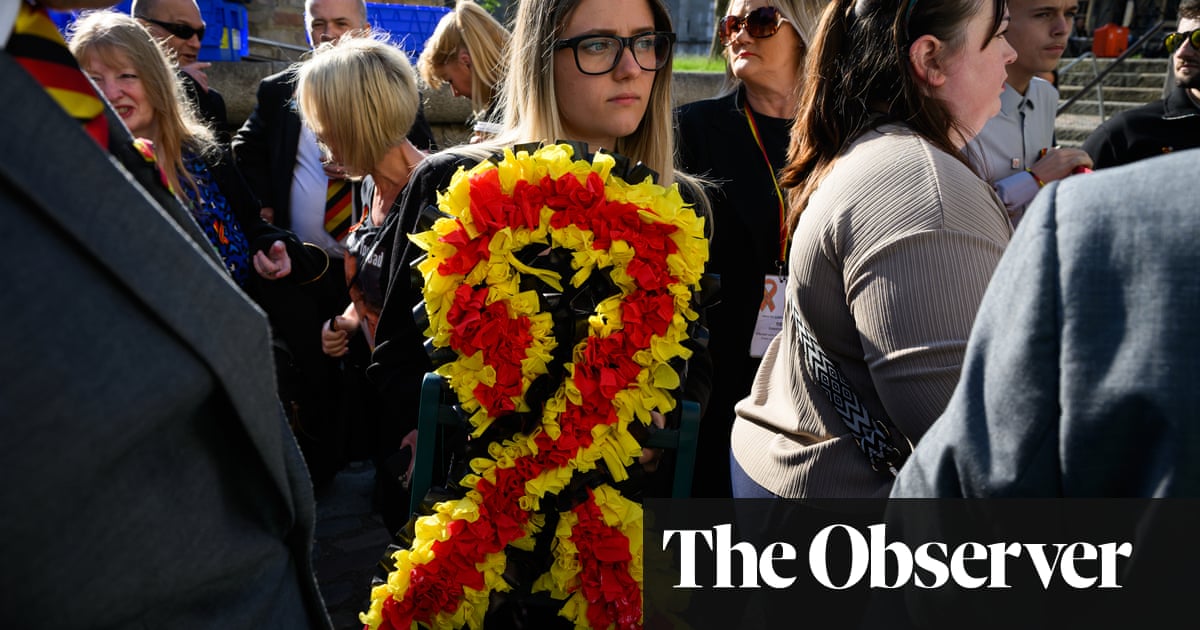
The German carmaker Volkswagen has agreed to pay millions in compensation to former employees in Brazil who were persecuted during the country’s military dictatorship.
A Brazilian government-appointed investigation found that Volkswagen was one of several corporations that secretly collaborated with the 1964-85 military government to identify suspected “subversives” and trade unionists.
The compensation payments announced on Thursday have been agreed between the company and federal, state and labour law prosecutors.
But some of those involved in the investigations said the deal whitewashed the extent of Volkswagen’s cooperation with Brazil’s military regime and failed to include a memorial to targeted workers which had originally been proposed.
Others argued it was the only deal possible under Brazil’s far-right president, Jair Bolsonaro – an outspoken defender of military rule.
Hiltrud Werner, the head of integrity and legal affairs on VW’s board of management, said in a statement: “It is important to take a responsible attitude towards this negative chapter in the history of Brazil and to make pains to be transparent.”
The government study found that workers considered to be “enemies of the state” were fired, arrested or harassed by police. Many were subsequently blacklisted and unable to find work for decades afterwards.
In 1972, Lúcio Bellentani was a member of a communist party cell at the Volkwagen factory in São Bernardo do Campo outside São Paulo. He was at his workbench one day when a police officer put a machine gun in his back.
VW security guards helped take Bellentani to the personnel department where officers interrogated him. “They started to beat me, they gave me slaps, kicks and punches, wanting me to tell them names of people who were political and union militants inside the factory,” he said in a 2018 video interview. “I said I didn’t know anyone.”
Bellentani was taken to São Paulo’s notorious Department of Political and Social Order (Dops), where he was beaten, tortured with electric shocks and had teeth ripped out with pliers. He died last year.
Adriano Diogo, at the time a student leader, was imprisoned with Bellentani and also tortured. “The factory delivered all the workers’ records to Dops … with the factory stamp,” said Diogo, who later presided the São Paulo state truth commission.
Now 71, Diogo said the Volkswagen Beetle patrol cars used by São Paulo state police from 1963-1987 were just one example of how close VW was to the military regime – and how much the company benefitted from the relationship. “History disappears in this deal,” Diogo said. “There has to be a historical reparation.”
Volkswagen will pay 36m reals (€5.5m), of which 16.8m reals will go to the Henrich Plagge victims’ association of former employees and their relatives, and the rest of which will be donated to human rights programmes. Another 4.5m reals will fund a university project identifying bones from a clandestine dictatorship cemeteries and investigating other corporate collaborations.
Geovaldo Santos, 71, was persecuted by VW bosses after taking part in a strike in 1980. He was sacked, reinstated, moved to a lower-paid job, and his file was handed to Dops. “It said I was politically infiltrated inside the factory, which was a lie,” he said.
Santos defended the agreement. “It was the only deal that was possible with the government we have,” he said.
The federal prosecutor Pedro Machado said a court case against Volkswagen would have taken a decade to conclude – with no guarantee of a ruling against the company. “Everyone has to make concessions,” he said.
Chrisopher Kopper, a historian from the University of Bielefeld who closely worked on the report, said that for at least 10 years from 1969, the company “unreservedly” handed over its employees to the authorities “at a time when the use of torture by the political police was already known to both the Brazilian and the German public”.
Kopper said the settlement was “historically groundbreaking”.
He added: “It will be the first time that a German company takes responsibility for human rights violations towards its own workers which took place after the end of National Socialism,” he said, referring to Germany’s 12 year-long Nazi dictatorship.
Volkswagen was founded in the 1930s at the request of the Nazi leader Adolf Hitler to produce an affordable car which normal workers could afford.
An estimated 80% of its workforce during the second world war consisted of slave labourers.












